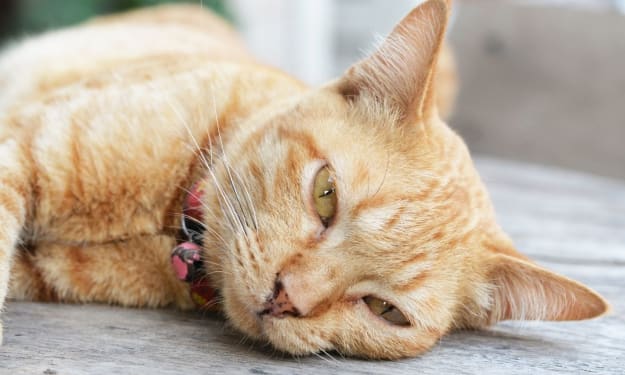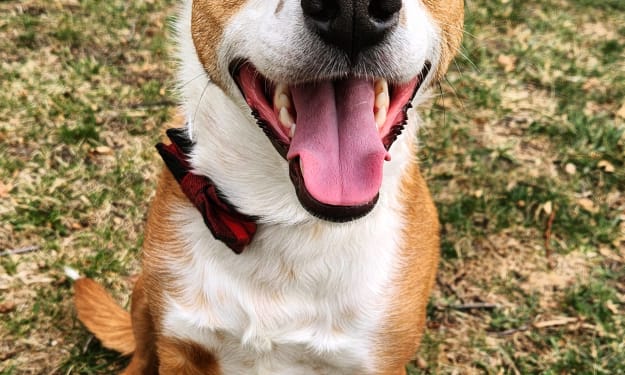
When people hear the word bloat, they may think about having an upset stomach. However, bloat in dogs can be a serious problem that should not be ignored.
What is bloat?
The medical name for bloat is gastric dilatation-volvulus. Also known by its initials, GDV, it is a very serious condition. When a dog bloats, his or her stomach fills with fluid, air, or food, and then twists. It is fatal if not treated quickly.
What are some of the risk factors for bloat?
Though it can be hard to figure out why certain dogs bloat, the truth is that there are some factors that increase a dog's risk. These include:

- Their breed and size. Bloat is more commonly seen in larger dogs that have deep chests. This includes Great Danes, German Shepherds, Dobermans, and much more.
- Gender. Males are more likely to bloat than females.
- Age. Bloat is more common in older dogs that are over seven.
- Those who wolf down their food. It is much better to feed smaller meals. Dogs who only eat once daily and gobble their food quickly are more likely to get extra air in their stomach, which can lead to bloat.
- Those who eat after exercise. You should never feed your dog right after strenuous exercise.
What are the signs of bloat?
It is important to know the symptoms of bloat because they shouldn't be ignored.
- Painful abdomen
- Uncomfortable and restlessness
- Swollen and hard abdomen
- Distended abdomen
- Shallow breathing
- Pale
- Collapse
What should you do if you think your dog has bloat?
The simple truth is that bloat is an emergency that needs to be dealt with immediately. Not only are you dealing with pressure as the stomach expands, but it can also twist, cutting off the blood supply to your dog's entire body. If left untreated, it will lead to shock and death.
For this reason, you need to get your dog to the veterinarian as soon as possible.
What is the treatment for bloat?
Your veterinarian will start with a thorough examination, before recommending blood work and x-rays. Because your dog may quickly become septic, an intravenous catheter will likely be placed, along with fluids to help keep your dog hydrated. This will also help for medications. Given IV, they will take effect much sooner.
If he or she suspects bloat, your veterinarian may place a stomach tube in order to get rid of some pressure. However, if the stomach has already twisted, surgery may be your dog's only option!
How can you prevent bloat?
If you have a dog with one (or more) risk factors, you are going to want to do everything that you can to prevent bloat. Here are some ways you can do so.

Feed smaller meals multiple times a day. Don't feed your large breed dog once daily, so that he or she gulps down the food. It is much better to feed smaller meals multiple times a day.
You may also want to look into a bowl that slows your dog down. Some people use toys that the dogs have to manipulate in order to eat. This will really slow your dog down!
If your dogs fight at mealtime (leading to gulping down food), you may need to separate them. Again, you don't want them to eat too fast, because they will take air into their stomach also.
Don't give them water right after eating. It is best to wait at least fifteen minutes before giving them water.
You also want to avoid exercise right before and after eating. This can increase your dog's chance of bloating.
You may also want to consider preventative surgery. If your dog is high risk, you may want to talk to your veterinarian about doing a gastropexy. This surgery tacks your dog's stomach to the abdominal wall so that it is not able to twist if your dog bloats. This could save your dog's life. Some veterinarians will do this when they spay or neuter dogs.
Bloating is a very scary disease that can quickly become fatal. For this reason, you need to know what you are looking for if you have a dog that is at high risk. You may even want to consider surgery in order to avoid this problem in the future!
About the Creator
Shelley Wenger
Small town country girl in southern Pennsylvania. Raising two boys on a small farm filled with horses, goats, chickens, rabbits, ducks, dogs, and a cat. Certified veterinary technician and writer at Virtually Shelley.






Comments
There are no comments for this story
Be the first to respond and start the conversation.